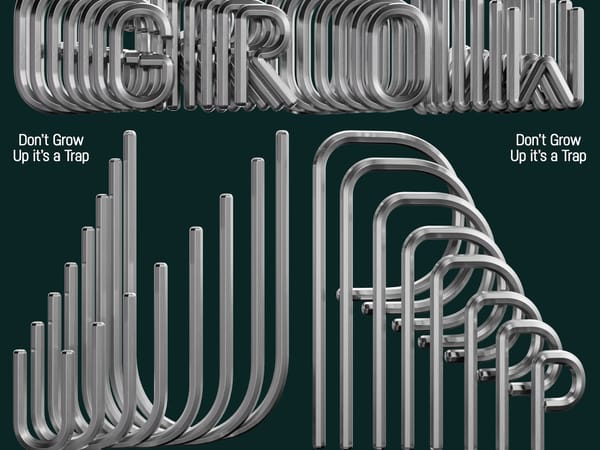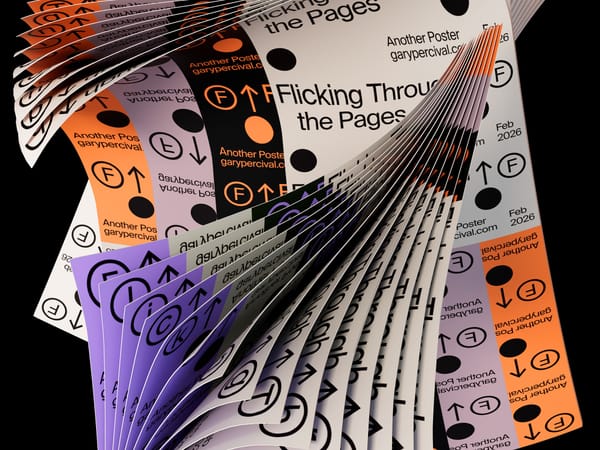The Myth of Worry: Why Being Relaxed Doesn't Mean You Care Less
In the modern workplace, it has become an unfortunate reflex to mistake anxiety over work for genuine engagement and devotion to one's responsibilities.


In the modern workplace, it has become an unfortunate reflex to mistake anxiety over work for genuine engagement and devotion to one's responsibilities.
The belief that constantly stressing over tasks and outcomes is a sign of passion and devotion to one's work is a pervasive myth that needs to be debunked. In reality, excessive worry can hinder productivity, damage mental and physical health, and lead to burnout. It's important to recognise that being relaxed doesn't mean you care any less about your work or your performance; rather, it means that you are able to approach challenges with a clear and focused mind.
Finding the right balance between relaxation and dedication is crucial for achieving success and maintaining overall well-being.
By cultivating a relaxed mindset, you can improve your decision-making skills, enhance creativity, and foster a more enjoyable work experience. At the same time, remaining dedicated to your goals and responsibilities ensures that you stay productive and continue to grow in your career. This delicate balance is essential for long-term success and happiness, both professionally and personally.
In the following sections, we'll explore the negative effects of worry on performance, the benefits of embracing a relaxed mindset, and strategies for cultivating this balance in your work life.
The Negative Effects of Worry on Performance
Constant worry can significantly impact productivity and focus at work.
When your mind is preoccupied with anxious thoughts, it becomes more challenging to concentrate on tasks and projects effectively. This mental distraction can lead to decreased efficiency, increased procrastination, and a higher likelihood of making mistakes. Moreover, excessive worry can cause decision-making paralysis, as the fear of failure or negative outcomes may prevent you from taking action or making necessary choices.
Mental and physical health consequences
The toll that chronic worry takes on mental and physical health cannot be overstated. Persistent anxiety has been linked to a range of mental health issues, including depression, irritability, and difficulty concentrating. Physically, stress can manifest in various ways, such as headaches, muscle tension, digestive problems, and sleep disturbances.
Over time, these symptoms can become more severe and lead to chronic health conditions like hypertension, cardiovascular disease, and weakened immune systems.
The role of stress in burnout and job dissatisfaction
The relationship between stress and job dissatisfaction is well documented, with numerous studies indicating that professionals who experience high levels of worry and anxiety are more likely to suffer from burnout and disengage from their work. Burnout is characterised by emotional exhaustion, cynicism, and reduced personal accomplishment, all of which contribute to a decline in job satisfaction and overall well-being.
By perpetuating the myth that worry is synonymous with dedication, we inadvertently promote an unhealthy work culture that can lead to rapid burnout, decreased morale, and reduced productivity.

The Benefits of Embracing a Relaxed Mindset
When you embrace a relaxed mindset, your brain is better equipped to process information, analyse situations, and make well-informed decisions.
A calm and clear mind allows you to evaluate various options and potential outcomes more effectively, leading to better problem-solving abilities and more strategic decision-making. This increased mental clarity can result in greater success at work, as it enables you to approach challenges with confidence and find creative solutions to obstacles.
Increased creativity and innovation
A relaxed state of mind promotes creativity and innovation by allowing your thoughts to flow more freely. Your brain can explore novel concepts, draw connections between seemingly unrelated ideas, and think outside the box when worry and stress are not weighing you down. This heightened creative thinking can lead to breakthroughs in your work, whether it's developing new products, improving processes, or finding inventive ways to tackle complex projects.
Enhanced well-being and overall happiness
The benefits of a relaxed mindset extend beyond professional success to include improved well-being and overall happiness. By reducing stress and anxiety, you can experience better mental health, increased energy, and a more positive outlook on life. Additionally, a calmer disposition can improve your relationships with colleagues, friends, and family, as well as help you maintain a healthy work-life balance.
In short, embracing a relaxed mindset can lead to a more fulfilling and enjoyable life, both in and out of the workplace.

Strategies for Cultivating a Relaxed Approach to Work
To cultivate a relaxed approach to work, it's essential to prioritise self-care and stress management.
This can include regular exercise, maintaining a healthy diet, getting sufficient sleep, and engaging in relaxation techniques. By taking care of your physical and mental well-being, you can better manage stress levels and maintain a more balanced mindset at work.
Setting realistic expectations and goals
One of the primary sources of worry and stress at work is setting unrealistic expectations and goals for yourself. To foster a relaxed approach, it's important to establish achievable objectives that align with your capabilities and resources. Break down larger tasks into smaller, manageable steps, and don't be afraid to ask for help or delegate when necessary.
By setting realistic expectations, you can reduce the pressure to perform perfectly and focus on making steady progress towards your goals.
Practising mindfulness and staying present
Mindfulness practises can help you stay present in the moment and prevent excessive worry about future outcomes or past mistakes. Meditation, deep breathing, or simply focusing on your breath can help you become more aware of your thoughts and emotions, enabling you to recognise when you're experiencing excessive stress or anxiety.
By practising mindfulness regularly, you can train your brain to remain calm and focused throughout the workday.
Developing resilience and coping mechanisms
Resilience is the capacity to recover from setbacks and adapt to difficult circumstances. Cultivating resilience can help you maintain a relaxed approach to work by allowing you to cope with stress more effectively. Strategies for building resilience include maintaining a strong support network, focusing on your strengths and accomplishments, and learning from past experiences.
By developing healthy coping mechanisms, you can better manage stress and maintain a positive attitude in the face of adversity.

How to Demonstrate Dedication Without Worry
One way to demonstrate dedication without succumbing to constant worry is by concentrating on your results and accomplishments.
Instead of fixating on potential problems or obstacles, channel your energy into completing tasks and achieving your goals. Celebrate your successes, no matter how small, and use them as motivation to continue striving for excellence in your work. By focusing on tangible outcomes, you can show your dedication while maintaining a more relaxed and productive mindset.
Communicating effectively with colleagues and clients
As a freelancer, graphic designer, or creative professional, your ability to communicate effectively is pivotal in showcasing your dedication without getting overwhelmed with worry.
Keep your team members and clients regularly informed about the status of your projects, seek their feedback, and actively take into consideration their suggestions. Transparent communication not only builds trust and nurtures positive relationships but also enables you to address any issues or hurdles promptly.
By keeping the communication channels open, you can display your commitment to collective efforts and seamless collaboration, thereby eliminating the need to stress over every minor detail.
Seeking continuous improvement and growth opportunities
A dedication to lifelong learning and continuous improvement is a powerful way to show your commitment to your work without falling victim to constant worry. Pursue professional development opportunities, attend workshops or conferences, and stay informed about industry trends and best practices. Embrace constructive feedback and view setbacks as opportunities for growth rather than dwelling on them as failures.
By actively seeking ways to enhance your skills and knowledge, you can demonstrate your dedication to your career while maintaining a healthy, relaxed mindset.

The Significance of a Nurturing Work Atmosphere for Fostering Calmness
A nurturing work atmosphere plays an integral role in fostering a sense of calmness and relaxation.
The value of a constructive and supportive work environment for freelancers and designers cannot be overstated. A positive setting encourages creativity, boosts productivity, and fosters a sense of belonging. It's an environment where ideas are valued, feedback is constructive, and every project becomes a learning experience.
Clients or project managers can play a significant role in promoting a stress-free mindset. This can be done through clear communication, setting realistic expectations, providing constructive feedback, and showing appreciation for good work. Recognising the effort and dedication that goes into each project can make a world of difference in reducing stress and promoting a relaxed work atmosphere.
Flexible project timelines can significantly reduce stress levels. They allow freelancers and designers to manage their workflows more effectively, accommodating unexpected hurdles or creative blocks. This flexibility leads to higher-quality outcomes, as creatives are not rushed and can give their best to each project.
Additionally, the freedom and autonomy that accompany freelancing and design roles can be double-edged. On the one hand, it allows you to set your own schedule and work at your own pace. On the other hand, the absence of structured guidance can lead to feelings of isolation or overwhelm.
It is essential for freelancers and designers who work independently to cultivate their own supportive work environment. This may involve establishing limits to maintain a healthy work-life balance, seeking out professional networks for support and collaboration, or investing in personal development and skill enhancement.
Creating a nurturing work atmosphere that promotes relaxation isn't just beneficial; it's essential. It leads to happier, more creative professionals who are capable of producing their best work, free from the shackles of unnecessary stress and worry.

In conclusion, it's essential to challenge the prevailing myth that worry equals dedication.
By redefining dedication as a commitment to achieving results, continuous improvement, and effective communication, we can promote a healthier approach to work that prioritises well-being and balance. Letting go of excessive worry allows us to perform at our best, make better decisions, and foster creativity, all while reducing the negative effects of stress on our mental and physical health.
As you move forward in your career, consider embracing a relaxed mindset as a powerful tool for achieving greater success and happiness.
By prioritising self-care, setting realistic expectations, practising mindfulness, and developing resilience, you can cultivate a balanced approach to work that demonstrates dedication without the burden of a constant worry.
Ultimately, a more relaxed and balanced approach to work can lead to a more fulfilling and enjoyable life, both professionally and personally.



